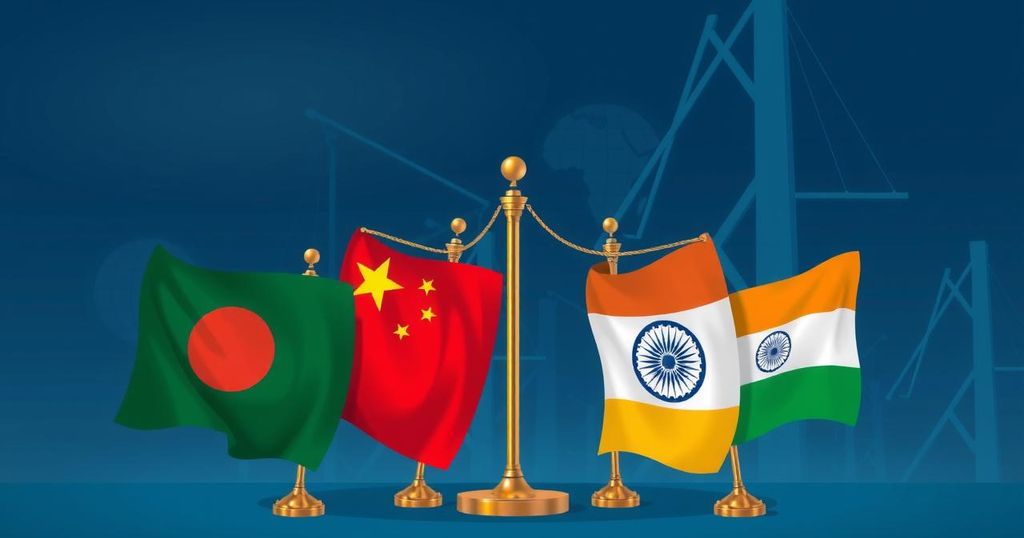Navigating the Shifting Ties Between Bangladesh and India: A Call for Strategic Diplomacy
Bangladesh is strengthening ties with Pakistan and China, which raises concerns for India ahead of the BIMSTEC summit. China’s commitment of investments and duty-free access reflects deepening relations with Bangladesh, while Pakistan is also enhancing cooperation. India’s previous reliance on Sheikh Hasina for stability has backfired, necessitating a reassessment of its diplomatic strategies. The upcoming summit in 2025 presents a crucial moment for India to engage proactively with Bangladesh.
The relationship between Bangladesh and India is at a critical juncture, particularly with the upcoming BIMSTEC summit in April 2025. Although a meeting between Bangladeshi Chief Adviser Muhammad Yunus and Indian Prime Minister Narendra Modi may not occur, such circumstances often call for noteworthy diplomatic initiatives. China has taken significant steps to strengthen its ties with Bangladesh, evidenced by President Xi Jinping sending a plane for Yunus and granting duty-free access to Bangladeshi exports, along with a commitment of $2.1 billion in investments and loans.
Pakistan is also enhancing its diplomatic and economic engagement with Bangladesh, having improved visa access and resumed direct flights. Military cooperation between Pakistan and Bangladesh is on the rise, which raises concerns for India, as relations that were once stable under former Prime Minister Sheikh Hasina are now precarious. India’s previous support provided stability in the region; however, the political shift post-Hasina’s ousting necessitates a reassessment of India’s strategy in Bangladesh.
The last two decades of Indian policy predominantly centered on Hasina, who provided crucial support. However, her controversial elections and a perceived alliance with India during times of unpopularity have led to increasing anti-India sentiment among Bangladeshis. Following Hasina’s removal in August 2023, India faced limited alternatives in its relationships within Bangladesh, highlighting the risks of relying on a singular political figure.
Initially, India’s cautious response to the political upheaval in Bangladesh led to critiques regarding its engagement. While the Indian media speculated on external influences behind the protests, prominent figures, such as former National Security Adviser Shiv Shankar Menon, argued they were organic movements. Dramatic narratives regarding violence and unrest in Bangladesh further complicated perceptions, creating emotional divides.
Unresolved issues, such as the Teesta water treaty, continue to hinder relations, causing agricultural hardships in Bangladesh and prompting the nation to form agreements with China for water management projects. Bangladesh’s trade deficit with India also exacerbates tensions, with substantial disparities in exports and imports.
In light of the upcoming summit, India must not allow its relations with Bangladesh to stagnate while awaiting favorable electoral results; the partnership is of utmost importance. Addressing current tensions necessitates patient and proactive diplomatic efforts, as the stakes remain high for both countries.
In conclusion, India faces pressing diplomatic challenges concerning its relationship with Bangladesh, especially against the backdrop of increasing ties between Bangladesh, Pakistan, and China. As Bangladesh’s political landscape shifts, India must adopt a strategic approach, prioritize enduring diplomatic engagement, and address unresolved issues. The upcoming BIMSTEC summit offers an opportunity for India to reaffirm its commitment to strengthening ties with Bangladesh and navigating the future collaboratively.
Original Source: indianexpress.com








Post Comment